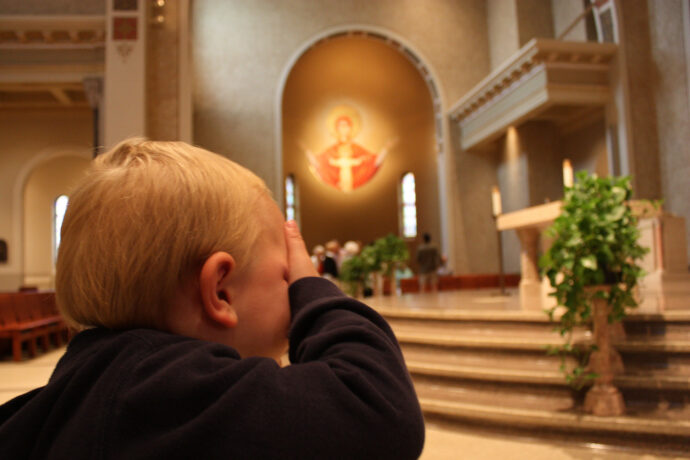What seems to be bothering conservatives most about Pope Francis’ Apostolic Exhortation Amoris Laetitia (“The Joy of Love”) isn’t that he suggests a poorly lit, somewhat twisting, buried-in-the footnotes penitential path to the resumption of Communion by divorced and remarried Catholics. What really seems to be annoying conservatives is that the pope has the temerity to admit that the gulf between what Catholics do and what the church teaches has become insurmountable and must be acknowledged for the church to move forward, even imperfectly.
Even Ross Douthat begrudgingly has to admit that the letter on marriage and family is sufficiently ambiguous to forestall the schism that he half predicted, half wished for if Francis created a formal structure to readmit the divorced and remarried to communion. Instead, what Francis has done, he says, is trickier and harder for conservatives to oppose. He has created a new papal teaching codifying the long-running truce in the church between doctrine and practice:
A teaching in favor of the truce itself. That is, the post-1960s separation between doctrine and pastoral practice now has a papal imprintatur, rather than being a state of affairs that popes were merely tolerating for the sake of unity. Indeed, for Pope Francis that separation is clearly a hoped-for source of renewal, revival and revitalization, rather than something that renewal or revival might enable the church to gradually transcend.
But what really bothers Douthat and others is that the pope appears to have lost confidence in the teachings themselves. He calls the church’s leadership “a little like the Soviet nomenklatura, bound to ideological precepts that they’re not longer confident can really, truly work.” The result is that what the church “once stated authoritatively it now proffers tentatively, in tones laced with self-effacement, self-critique.”
Writing in The Week, Michael Brendan Dougherty similarly bemoans a lack of certainty, of faith, in church teachings:
The Church can no longer even bring itself to condemn respectable sins such as civilly approved adultery. It can barely bring itself to address a man or woman as if they had a moral conscience that could be roused by words like “sin.” Instead, it merely proposes ideals; ideals cannot be wounded by your failure to realize them. … It admits that God’s commands are not just beyond our reach, but possibly destructive to follow.
And that is exactly what Francis had done: admitted that even settled matters of church doctrine are in fact aspirational and that to discard all Catholics who don’t make the mark is suicidal for a religion. He may be talking about divorce, but the implications are clear for issues like birth control.
The document, as Mary Hunt notes here in RD, is clearly imperfect and leaves much to be desired, ignoring root issues that have alienated so many Catholics from the church. But in his own way, Pope Francis has made a great leap forward for the Church. He has admitted that the center cannot hold. The gulf between what the community practices and what the church preaches is simply to great. The church can no longer bear the weight.
What Dougherty, and Douthat and the other critics of Francis as too “liberal” won’t—or can’t—admit is that much of this is beyond Francis’ control. They act as if enforcing the church’s doctrine is simply a matter of the hierarchy cracking down on all the gay divorcees sashaying up to the communion rail or the supposedly “good” Catholics who magically only have two children in a 20-year marriage.
But if that were the case, then the dioceses of such authoritarians as the late Cardinal Francis George or Cardinal Timothy Dolan would be full of orthodox Catholics crowding the pews. Instead every few years brings another round of shuttered churches, wayward Catholics having gone elsewhere or abandoned religion altogether.
The reality is, it takes a village to enforce doctrine and gone are the days when a church community would shun an unmarried single mother or a gay man, never mind when the larger community would shun an admitted atheist or the unchurched.
Francis is simply admitting that truth. The church must change and evolve, even if in tiny, tortured, steps.
It’s unlikely that Amoris Laetitia will be enough to effect even a small halt in the historic decline of the church. It’s a good 25 years to late and more than a dollar short in terms of the change Francis will, or can, make. But at least he has admitted that somehow, things have to change.





